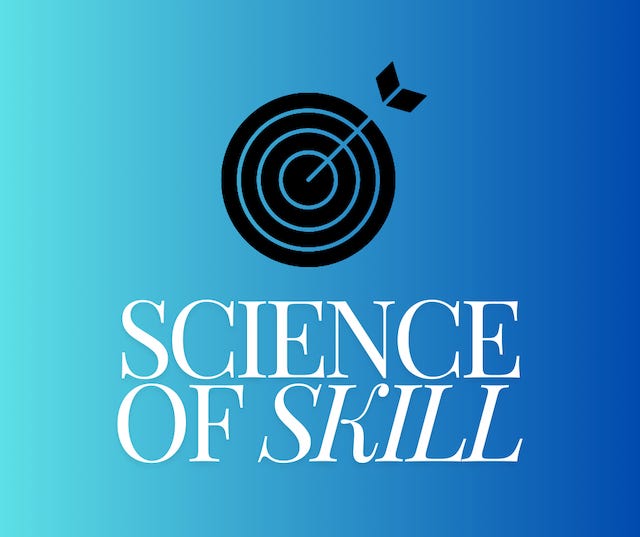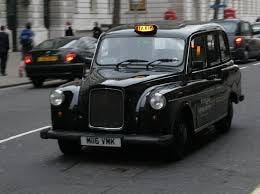The world's hardest test
What London cabbies tell us about the human brain and artificial intelligence
Anyone who has spent much time reporting on the brain sciences is familiar with the name Eleanor Maguire. She was a psychologist at University College of London studying memory. Like all good researchers, she noticed something that seemed extraordinary and asked, How?
What she saw, so the story goes, was a semi-forgotten TV film from the 1970s that was re-airing in London in the mid-1990s called “The Knowledge.” It was about the drivers aiming to pass the test that earns them the “green badge” license for London’s famous black cabs.
The movie explains that candidates need what is essentially a photographic memory of roughly 25,000 streets and 20,000 different landmarks along hundreds of different routes throughout London’s central city. Many observers have called it “the hardest test in the world.”
A story in The New York Times Magazine in 2014 found that drivers must automatically know “anywhere a passenger might ask to be taken,” including clubs, restaurants, stadiums, courts, hospitals, and other places of interest. And the examiners are ruthless. “Test-takers have been asked to name the whereabouts of flower stands, of laundromats, of commemorative plaques,” according to the Times.
Drivers aren’t allowed to consult maps when they are performing their duties. GPS? Don’t even think about it. To prepare, candidates are issued a textbook with 320 routes. Studying usually requires practicing each of the runs, timing out shortcuts, over and over and over again, for years.
One driver logged 50,000 miles on foot and on a motorbike over more than three years. He memorized 40,000 flash cards.
Maguire passed away in January at age 54 after a battle with cancer, so I thought it would be appropriate the share her enormous contributions to the fields of neuroscience and psychology — and computer science, which we’ll get to later.
After watching the movie, she brought dozens of experienced cab drivers into the lab and scanned their brains to understand what may be behind their extraordinary ability to recall so many destinations. Sure enough, Maguire discovered that a brain region called the hippocampus in drivers was physically larger compared with non-drivers — even larger than London bus drivers, who only need to know a handful of routes.
This alone was an earth-shifting discovery: London cabbies have bigger hippocampi than normies. But Maguire still was not satisfied with that. Were the cab drivers born with a different brain structure that selectively steered them in the direction of driving? Or did their brains develop and change over time?
Four years after the original study, she brought the same drivers back into the lab and measured even more growth in the hippocampus among those who were still driving, and no growth from those who had stopped. It told her that the brain was changing as drivers continued to practice their craft. Just like a professional pitcher would have a stronger arm than most people, London cab drivers had developed brains that were adapted by their training.
Maguire did not technically discover what we now know as “neuroplasticity.” That is a concept that goes as far back as psychologist William James at the turn of the 20th century. (“The brain-matter is plastic,” James wrote.)
But until her studies with cab drivers, the popular view about the brain was that it became essentially “fixed” upon entering early adulthood. There are “critical periods” of development early in life, but once we reach a certain age, those windows are shut.
Maguire showed that adult brains, in fact, can change quite dramatically — if pushed or pulled in meaningful directions. It is responsive to lifelong learning. Even something like memory, long thought to be primarily inherited, can be trained over the course of one’s experience.
Maguire’s findings have been hugely influential for studies on aging, neuro-rehabilitation, and recovery after traumatic brain injuries. And the science of memory continues to build off the work that Maguire started more than two decades ago.
Just last month, a new study published in the Proceedings of the National Academy of Sciences argues that London cabbies should change how we think about training artificial intelligence.
Researchers profiled drivers and found an astonishing trait: Without a map or a GPS, they were able to call out the names and turns on any route between any destination in the entire city of London.
They had, in essence, memorized the entire map of the city and could retrieve select pieces of it at any moment.
When GPS or other algorithmic systems attempt to do this, it requires a mind-boggling number of steps in order to produce turn-by-turn directions. They run through hundreds or even millions of possible routes in order to find the one that is most optimized. That they can do this in a matter of seconds is remarkable, but it requires an enormous amount of energy and computing power.
Conversely, the researchers found that the thought process of the London drivers was much more efficient. They mentally mapped out their routes in order of complexity, spending more time thinking through the trickiest junctions and less-common streets they predict they might encounter and filling in the rest of the details later.
The researchers were shocked by this approach and how their extraordinary knowledge of the city seemed to grant them a unique kind of intuition about navigation. Their brains didn’t behave like computers at all. They were far more flexible and efficient. This granted them expertise over their given domain.
We should be training algorithms to do something similar, the researchers suggested. Eleanor Maguire’s initial epiphany to study cab drivers after watching a TV movie continues to pay dividends.
Until next time,
Zach
Links
How streaks keep you productive … Why palm-cooling devices are all over the sidelines … The NFL thinks Aaron Rodgers is washed up. Science thinks he is a bargain … How AI is helping Chelsea fill its roster … Handstands, aquatic cardio, and... speed chess? How Victor Wembanyama trains … Triathletes don’t sleep enough … The “cuboid” might be the most important bone in golf … How to throw the longest drives in disc golf … The Science Behind Why Footballers Spit on the Field … Getting JAKed (h/t
) … The risks of relative energy deficiency while training … Twitch streamer hired by professional soccer club thanks to success managing virtual teams … RIP Richard MorganReferences
Decoding the Knowledge: How Taxi Drivers Think Differently From AI







I had read Maguire's obit in the Times and naturally was blown away by revelations of London cabbies' brains. Since I go to London often--my daughter lives there--I long have been aware that the city's layout of roads makes no sense whatsoever. No straight lines. And the cabbies' knowledge is remarkable.
But I recommend taking the tube. Car traffic is horrendous.